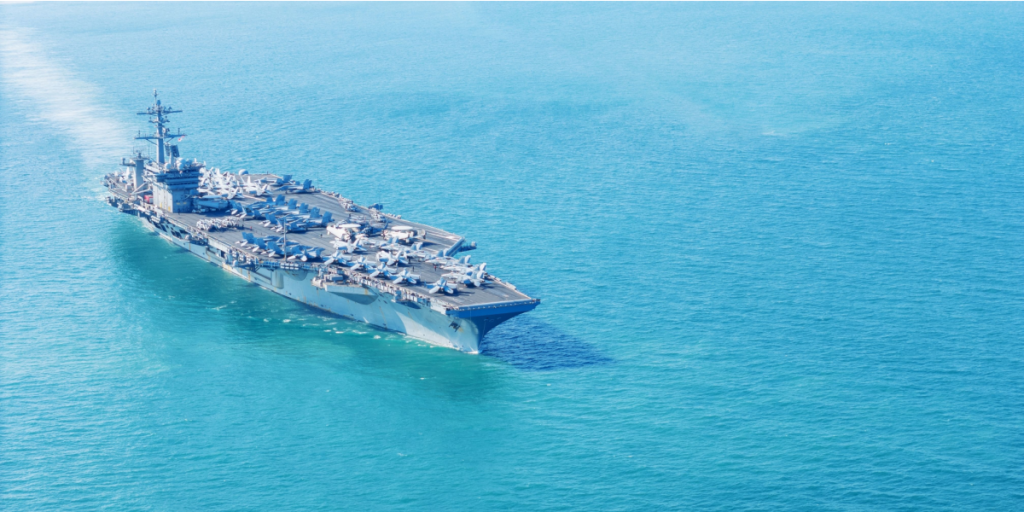The carrier’s arrival bolsters the extensive deployment of American forces in the region.
Others are reading now
The United States has sent its most advanced aircraft carrier, the USS Gerald R. Ford, into the Caribbean, marking a major military move as tensions grow between Washington and Venezuela.
The carrier, along with three missile-equipped Navy destroyers, brings 5,500 more troops to a region already hosting 10,000 American forces.
Half of those troops are stationed on land in Puerto Rico. The other half are on eight warships in the area. This marks the largest U.S. military presence in the Caribbean in decades.
The Ford’s deployment is unusual. It left the Mediterranean Sea earlier than planned after Defense Secretary Pete Hegseth ordered it to move closer to Latin America.
A senior military official confirmed it is now in the Caribbean, although the Navy has only said the group is somewhere in the Western Atlantic.
Also read
U.S. escalates anti-drug strikes
The move follows a wave of U.S. strikes targeting boats suspected of drug smuggling. Just this week, six people were killed in two new strikes in the eastern Pacific.
Since early September, U.S. forces have carried out 19 strikes that have killed 76 people.
The administration claims the boats are part of drug cartels.
But many legal experts argue the strikes are illegal because the U.S. is not at war with these groups and cannot target civilians without clear evidence of an imminent threat.
Britain has stopped sharing intelligence on Caribbean drug activity with the U.S. out of concern it may be tied to these deadly operations. A Western official said London believes the strikes violate international law.
Also read
More than drugs
The aircraft carrier’s presence could have broader goals. U.S. officials say the Trump administration is still considering military action to remove Venezuelan President Nicolás Maduro.
Options on the table include strikes on military units guarding Maduro or seizing control of the country’s oil fields.
Maduro has been indicted in the U.S. on drug trafficking charges. A $50 million reward has been offered for his capture. Trump officials now refer to him not as a leader but as a “fugitive from justice.”
President Trump has not yet approved any operations in Venezuela.
Sources say he is cautious about risking American lives or facing a failed mission.
Also read
Sources: U.S. Naval Forces Southern Command, The New York Times


